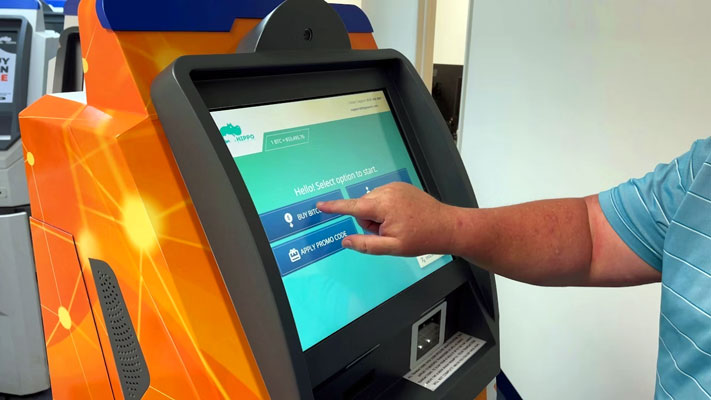The loss of Arizona seniors to fraudulent cryptocurrency exchanges totaled almost $11 million in 2024, an approximate doubling of 2023 loss totals. The increase is prompting State lawmakers to take action to help protect their elderly citizenry from the growing number of scammers using crypto ATM kiosks to target older Americans.
A recent law, House Bill 2387 (HB-2387), went into effect, imposing restrictions on the operation of approximately 600 cryptocurrency exchange kiosks (crypto ATMs) within the state. The machines operate similarly to regular ATMs, but they allow users to withdraw cash from their bank accounts, use it to buy cryptocurrencies, and then load those cryptocurrencies into online wallets. HB-2387 restricts first-time users to no more than $2,000 in transactions per day, while limiting veteran users to no more than $10,500 per day. Additionally, HB-2387 mandates that each kiosk screen include fraud alerts displayed to all users before completing any transaction.
Most cryptocurrency users handle their transactions through online platforms and exchanges, which offer more security features and protection. These digital platforms provide verification processes, transaction histories, and customer support that physical kiosks often lack. Investors typically research market trends and explore new crypto to invest in through established exchanges that offer educational resources and security measures. Major platforms have implemented two-factor authentication, identity verification, and insurance policies to protect user accounts and funds. This online approach gives users time to make informed decisions without pressure.
However, while the increased use of cryptocurrency creates many new opportunities, it also opens up significant chances for malicious individuals to act inappropriately. There are several examples of criminal activity associated with crypto kiosks that target elderly people. Criminals usually present themselves to the victim in one of three different roles: bank representative, tech support agent, or law enforcement officer.
The scammer then creates a sense of panic and urgency, leading the victim to believe they need to deposit the money immediately into a crypto kiosk to either save their account(s) or avoid legal trouble. As soon as the deposited funds are converted to cryptocurrency and moved to a digital wallet, they can be transferred to an overseas account in minutes. Due to the rapid movement of cryptocurrencies, law enforcement agencies generally do not recover funds lost to such scams.
New state law mandates cryptocurrency kiosk operators to install fraud prevention technology (anti-fraud blockchain software) on their kiosks and generate a receipt for each transaction made at one of their kiosks. The receipt will allow investigators to follow the money and provide consumers with a paper trail to support filing a complaint against them. Additionally, if a customer reports being scammed by an Arizona kiosk operator, they will be entitled to a full refund of all money lost, including fees. But the customer must submit the report within 30 days of purchasing at a kiosk.

Arizona has joined nine other states that have enacted legislation requiring the use of fraud-prevention technology, such as anti-fraud blockchain-tracking software on cryptocurrency kiosks and the issuance of a receipt for each transaction made at those kiosks. The states that have previously introduced similar measures are Colorado, Illinois, Iowa, Louisiana, Maryland, Nebraska, North Dakota, Oklahoma, and Rhode Island. California and Connecticut were the first two states to enact legislation regulating cryptocurrency kiosk operators in 2023. In fact, California recently imposed a $300,000 fine on cryptocurrency kiosk operator Coinme for failing to comply with the state’s Digital Financial Assets Law.








